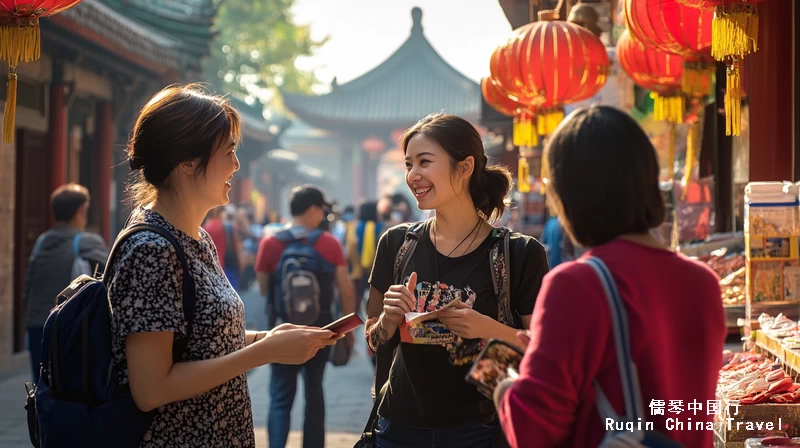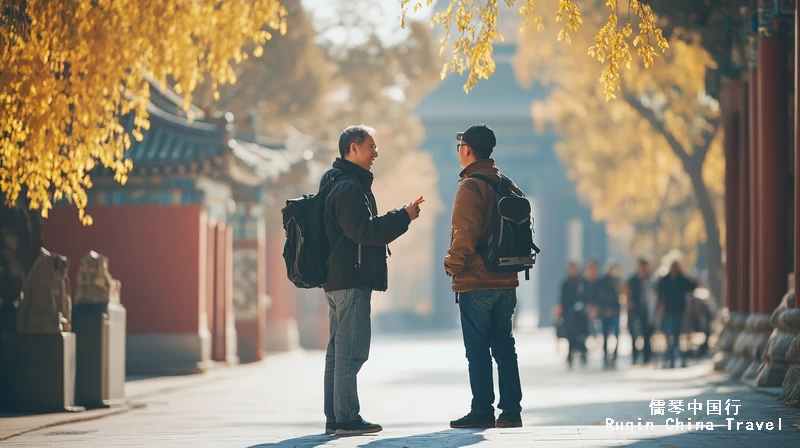When visiting a new country, understanding local customs is essential for a smooth and respectful experience. One area that often causes confusion for tourists is tipping. Every country has its own unique tipping culture, and tipping in China can be quite different from what travelers are used to in other parts of the world.
This guide will walk you through the essential tipping practices in China, answering common questions like “Is tipping expected in China?” and providing advice for various services.
1. Is Tipping Common in China?
Unlike many Western countries, tipping is not a common practice in China. In fact, in most situations, tipping can be seen as unnecessary or even confusing. However, there are a few exceptions where tipping is becoming more accepted, especially in areas with a high volume of foreign tourists.
For the most part, locals do not tip, and service workers generally do not expect tips. Understanding this can help you avoid awkward situations. However, as China becomes more globally connected, tipping practices are slowly changing in certain industries like tourism and luxury services.
2. Understanding Tipping Culture in China
Before we dive into specific situations, it’s important to understand the overall tipping culture in China. Historically, tipping was not part of Chinese culture. Service charges are often included in the total bill, particularly in high-end establishments or hotels, which eliminates the need for additional tipping.
That said, foreigners who tip out of habit may still do so in certain tourist-heavy areas. Some workers in places like hotels, tour companies, and luxury restaurants may be accustomed to receiving tips from foreigners. But in most everyday situations, tipping is neither expected nor required.
3. Tipping in Restaurants in China
One of the most common questions from travelers is whether tipping is expected in Chinese restaurants. In most local restaurants, especially smaller establishments, tipping is not practiced. The price you see on the menu is the price you pay, with no need to add extra for service.
However, in high-end or international restaurants located in major cities like Beijing or Shanghai, tipping may be more common, especially if the restaurant caters to foreign clientele. Even then, it is not required, as service charges are typically included in the bill. If you feel compelled to leave a tip, rounding up the bill or leaving a small amount (around 5-10%) is generally sufficient.
4. Tipping for Taxi Drivers in China
Another common area of confusion is tipping for taxi drivers in China. Tipping is not expected in taxis, and drivers do not typically anticipate any extra payment beyond the fare displayed on the meter.
That said, if a taxi driver provides exceptional service, such as helping with heavy luggage or offering useful advice, some tourists may round up the fare as a polite gesture. However, this is entirely optional. In ride-hailing services like Didi, there is also no tipping expectation, and the app provides clear fare information.
5. Tipping for Tour Guides in China
Tour guides are one area where tipping customs for tourists in China differ slightly. While tipping is not common in everyday situations, it is becoming more accepted for tour guides, particularly those who work with foreign tourists. Many tour guides in China rely on tips as part of their income, especially in the more international tourist destinations.

If your tour guide provides excellent service, a tip of 50-100 RMB per day is a good gesture of appreciation. Additionally, if you have a dedicated driver during your tour, it is also common to tip them around 50 RMB per day, depending on the level of service.
6. Tipping for Hotel Staff in China
Tipping for hotel staff in China is generally not expected in most local and budget hotels. However, at luxury hotels, international hotel chains, or resorts that cater to Western tourists, tipping is becoming more common. If you receive assistance with your luggage, a small tip of 10-20 RMB is appreciated but not required.
Housekeeping staff in high-end hotels may also be accustomed to receiving tips from foreign guests. Leaving a small amount (20-30 RMB) per day on the nightstand can be a nice way to show your gratitude for excellent service. However, in smaller hotels or local guesthouses, tipping is uncommon and may even be refused.
7. How Much to Tip in China?
The question of how much to tip in China depends largely on the situation. In most cases, tipping is not expected, but if you do choose to leave a tip, it’s helpful to know some general guidelines. In restaurants, if you decide to tip, 5-10% of the total bill is more than enough. For tour guides, 50-100 RMB per day is a common amount, and for hotel staff, 10-30 RMB is appropriate for assistance with luggage or daily housekeeping.
Remember, tipping is optional, and in many cases, not leaving a tip will not offend anyone. Most workers in China are not accustomed to receiving tips and will not expect it.
8. Tipping Practices for Foreign Tourists
For foreign tourists visiting China, it’s important to adjust expectations around tipping. While tipping is common in many countries, especially in the West, China operates under a different system. Many services include service charges in the final bill, so extra tipping is not necessary.
Additionally, in situations where tipping is accepted, it’s often seen as a gesture of appreciation rather than an obligation. This is different from countries where tips are required to supplement worker wages. By understanding these tipping practices in China, you can avoid confusion and unnecessary expenses during your trip.
9. Do’s and Don’ts of Tipping in China
To ensure smooth interactions during your trip, here are some key do’s and don’ts of tipping in China:
- Do tip in situations where it’s expected, like guided tours or luxury hotels.
- Don’t feel pressured to tip in casual dining establishments or when taking taxis.
- Do offer tips as a gesture of appreciation when the service exceeds your expectations.
- Don’t insist on tipping if the service staff refuses your offer. It’s not always culturally expected.
- Do check if service charges are included in your bill at high-end restaurants or hotels before leaving a tip.
By following these tipping rules for tourists in China, you’ll navigate the tipping culture with ease and avoid any misunderstandings.
10. Tipping Norms in China for Foreigners
For first-time visitors, tipping norms in China for foreigners may seem unfamiliar at first. While tipping is common in many parts of the world, it’s less expected in China. However, as tourism grows and more international visitors travel to China, tipping is becoming more accepted in some areas, particularly in tourist-heavy destinations.
When traveling in China, always remember that tipping is optional and situational. In many everyday settings, you won’t need to tip, but in luxury or tourism-related services, a tip can be a nice way to express appreciation.
When it comes to tipping in China, the key takeaway is that tipping is not a widespread or mandatory practice. In most daily interactions, from dining at local restaurants to taking taxis, tipping is neither expected nor necessary. However, in certain situations, such as guided tours or luxury hotels, tipping is becoming more common, especially in places frequented by foreign tourists.
For first-time visitors, understanding China tipping culture can make your trip smoother and help you avoid awkward moments. By following this tipping guide for first-time visitors in China, you’ll know when tipping is appropriate and how much to offer. Ultimately, tipping in China is a way to show appreciation, not an obligation, so enjoy your trip and focus on experiencing the rich culture and history that the country has to offer.
More China Survival Guide
Planning China tour ? Our China Survival Guide offers essential tips and advice to help you navigate the country with confidence. From cultural etiquette and transportation tips to staying healthy and avoiding common scams.



